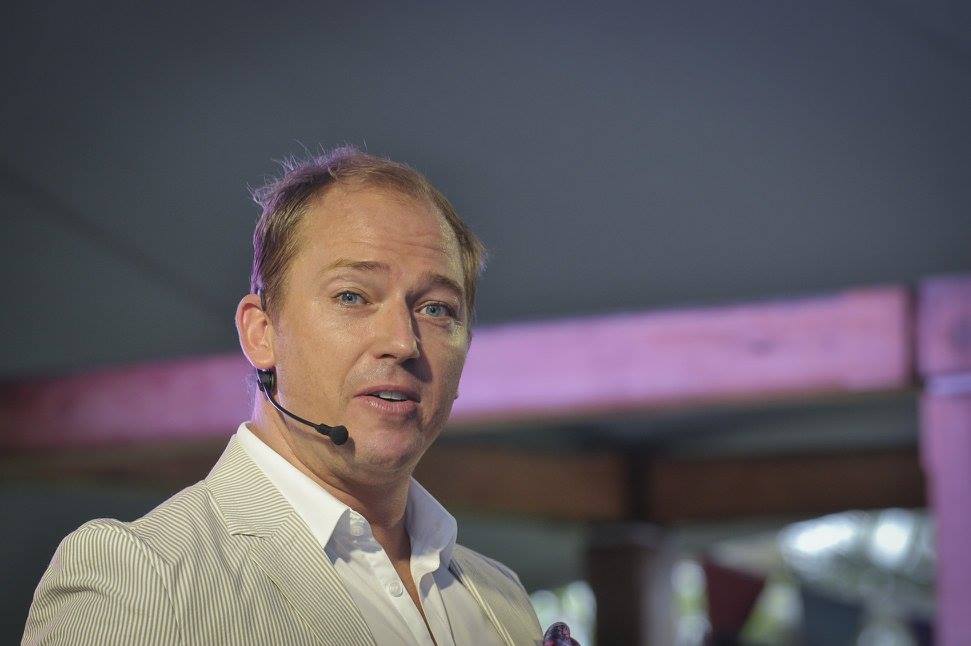Joel Churcher: “Africa represents less than 10% of BBC’s turnover”
Share

The BBC and its channels require no introduction worldwide. Africa is of a growing importance in the group’s strategy, as pointed out by its Vice President & General Manager Africa in an interview with Business Magazine.
BUSINESSMAG. The BBC appointed a General Manager for each of its regional markets worldwide after a restructuring process eighteen months ago. What are your main responsibilities as Vice President & General Manager Africa, BBC Worldwide?
Our aim is to inspire global audiences with premium content. One of the things that I am tasked with is to look at the two and a half thousand hours of content that we churn out every year and what will appeal to African audiences out of this.
Our channels are different in every market and the content selection works differently. For example, comedy works really well in Norway while in Australia that would be British drama. So, it is a case of looking at what we have got in terms of genres and what resonates here in Africa. Our relationship with MultiChoice Africa means that we get to bring more 24/7 channels across the continent.
BUSINESSMAG. How does BBC position itself on the African continent?
BBC produces two and a half thousand hours of fresh content every year. We recently invested 200 million pounds’ worth into our content over one year since the aim of the Chief Executive Officer was to increase its premiumness. We generate 3 billion pounds’ worth of license fees every year, which as a public broadcaster, is quite a unique position to be in. The BBC also generates over a billion pounds from TV content sales around the world.
BUSINESSMAG. What is the contribution of the African continent to the group’s turnover and your general presence worldwide?
Africa is relatively new, I would say. What is more important is the fact that over the last year, we carried out a lot of research into our markets worldwide. Africa is one of our main markets and so extensive and detailed research to get to know what our fans want was commissioned. We also reached out to 12 other markets such as Mexico, Russia and Australia. We got a real feel of what our audiences require, which is premium content. Around 88% of our business in Africa sits with MultiChoice Africa while our African business in general represents less than 10% of total group turnover.
BUSINESSMAG. What is your strategy to hike up these numbers?
The business model is not ours, but rather MultiChoice Africa’s. We are all here to grow subscribers. As they grow their viewer base, we as international channels are also tweaking our strategy to then obviously tailor what we can deliver to each of those markets.
Five million subscribers are in South Africa only compared to barely a million on the rest of the continent. We need to have commercial returns on those markets and at the moment, South Africa is a big priority. That is not to say that we have not got our eye on Africa. Our global president came to South Africa two months ago and I took him to Nigeria where we spent five days looking what we can possibly do there. I was also recently in Nairobi, Kenya where I met with local broadcasters there to get a better idea of the audience preferences there.
BUSINESSMAG. Where does Mauritius fit in your plans?
I get asked that question often. It would not come as a surprise if I say that Mauritius is a very small market for us. There is resonance of a lot of British content here. However let me just remind that our job is to inspire global audiences and our current strategy is to think global. We are in the fortunate situation that the content we process is of very high quality and does resonate around the world. So I let the local channels do what they do best while what we do best is creating the best programs that get bought around the world.
I will be honest; it is not in our strategy to look into tapping individual markets. We rely on three pillars, which are premium quality content, creating global brands which resonate and, thirdly, digital innovation. Localising our content and offering is not on the cards right now.
BUSINESSMAG. The way people consume content is changing with the technological revolution of tablets and smartphones. How is the BBC coping with the shift from television to a more content-based approach?
Netflix is our biggest client globally. As mentioned, the first pillar of our strategy is premium content and we thus do not mind where it sits. Our aim primarily is to grow audiences worldwide and digital advances only mean that we have got more opportunity to deliver to other clients.
BUSINESSMAG. What are the steps being taken to adapt content to the African context?
It is a good question. As a public broadcaster, we have got an obligation to the British public and I would argue that the British public is a big mix of every colour, age and culture. I think this is reflected in the content that we produce. We’ve always had a global vision and we are trying to implement a global perspective which can be appreciated by everyone, whether in London or in China.
BUSINESSMAG. Coming back to Mauritius, what can be done for the country to be more present on your radar?
The BBC has got around 200 formats in its catalogue, such as Top Gear and The Great British Bake Off. There is nothing stopping us from doing The Great Mauritian Bake Off, if there were a big enough audience and the required economies of scale.









